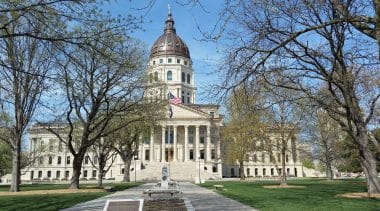Raheem Williams has contributed to the Pension Integrity Project's research.
At Reason, Williams has contributed to in-depth analysis of the Florida FRS, North Carolina TSERS, and North Dakota PERS pension systems. Williams also co-authored a study of defined contribution plans as part of Reason’s ongoing Gold Standard In Public Retirement System Design series. He has presented testimony before the North Dakota House of Representatives Government Veterans Affairs Committee on House Bill 1209 and Senate Bill 2046.
Williams’ work has appeared in The Orlando Sentinel, Carolina Journal, The Grand Forks Herald, South Florida Sun Sentinel, The Florida Times-Union, and Townhall Finance.
His work has been published by The Foundation for Economic Education and The John Locke Foundation.
Previously, Williams worked as an economic research specialist with The Center for the Study of Public Choice and Private Enterprise at North Dakota State University.
He completed his undergraduate degree in economics at Florida International University in Miami, FL, and his Master’s in Financial Economics at the University of Detroit Mercy.
-
The Debate Over Pension Debt and Government Spending in Kansas
KPERS may be substantially overestimating the value of its assets and underestimating its current pension debt.
-
Birmingham’s Pension Woes Continue to Compound
Fitch Ratings downgraded Birmingham's issuer default rating and general obligation bond ratings to A+ from AA-.
-
Kansas Pension Proposal Would Add Long-Term Costs, Debt
Gov. Kelly’s plan could also further exacerbate the fiscal impact of the system's overly optimistic investement assumptions.
-
Birmingham Mayor Urges His City Not to Ignore Its Growing Pension Problems
"Please understand, if we do not take definitive action now, the city will face widespread financial problems. The city’s credit rating will likely be lowered, creating an even greater challenge in fully funding the pension."
-
The Iowa Public Employees Retirement System Needs More Than a Year of Solid Returns
IPERS’ unfunded accrued liability grew from $441 million in fiscal year 2001 to $6.97 billion in fiscal year 2017.





